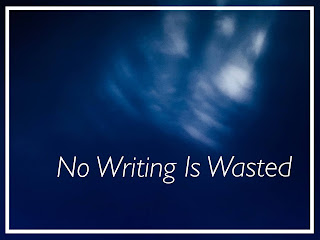Vivien took our topic of the week and compared it to gardening. I totally dig her explanation. You should check it out.
But today is Thursday which means I’m supposed to provide some insight. Which is difficult for me to believe that I can offer up anything useful, a side effect of struggling mentally, though I’m going to give it a go.
Once upon a time I was invited to write a novella for an anthology. At that time I’d only written one novel and was working on my second and I thought sure, I can write something creepy and short! Reader: I can’t write anything short. My first stab at a novella ended up exploding into the opening for what could’ve been a 95,000 word novel!
Whoa! Let’s deconstruct that sentence because it packs a lot.
First, my novella attempt exploded meaning I failed to keep the story and pace compact enough and it ended up reading like the first few chapters of a novel. Second, this novella draft was for a thriller anthology. 95,000 words is too long for a short and it’s too long for a thriller novel!
-No Writing Is Wasted-
You know the saying “no writing is wasted”? Well, I guess it’s actually true because from this failed attempt I did learn a few things. Yep, you’ve got that right: I can’t write anything short. I love building; building the world, building the characters and their growth slowly, building the plot. So I know if I’m ever to really write a novella I’m going to have to practice a new kind of writing craft.
I also learned how to plan out the length of my WIP (work in progress). The first novel I wrote I penciled into a 5 subject notebook. Bad idea on so many levels, but for today’s topic—soooo bad in regards to knowing how long the book would be. And since I was in the process of drafting my second novel I decided to change my process and write each scene to match its genre: sci-fi thriller.
Plotter (n): someone who plans things out in advance
I’m a plotter, so I already had a synopsis and an outline and knew what would happen in each chapter. But I had long first and second chapters and a short third chapter. How in the world was I supposed to predict the length of my completed manuscript at this rate and how long should it be?!
Problem! How long is the typical scene for a thriller?!
My solution was to read. I picked up countless science fiction, thriller, and sci-fi thriller books. I made a spreadsheet. *tip my hat to Jeffe* And after all that I determined I wanted my book to end up at 75,000 words (about a 300 page book because that was the average length for thrillers). On top of knowing how long I wanted the complete project to be I also knew I needed to keep the action tight for this genre and my goal was to have each chapter be in the 6-8 page range.
#writingtip
to calculate book length from word count ÷ by 250
On average there are 250 words per page.
Armed with this knowledge I set out to work each scene to fit my page goal which led to me to reaching THE END at 76,000 words! Granted, that was the first draft and it went through a lot of revisions resulting in additional scenes. Curious about how it all turned out? Well, the WIP I’m talking about is THE MARS STRAIN which will release in audiobook on April 27th!
Next week I’ll share a preview of the cover. Until then, let me know how you plan for the length of your WIP! If you’re a pantser how do you make it work? If you’re a plotter as well, do you outline each scene so you can control the chapter lengths?





